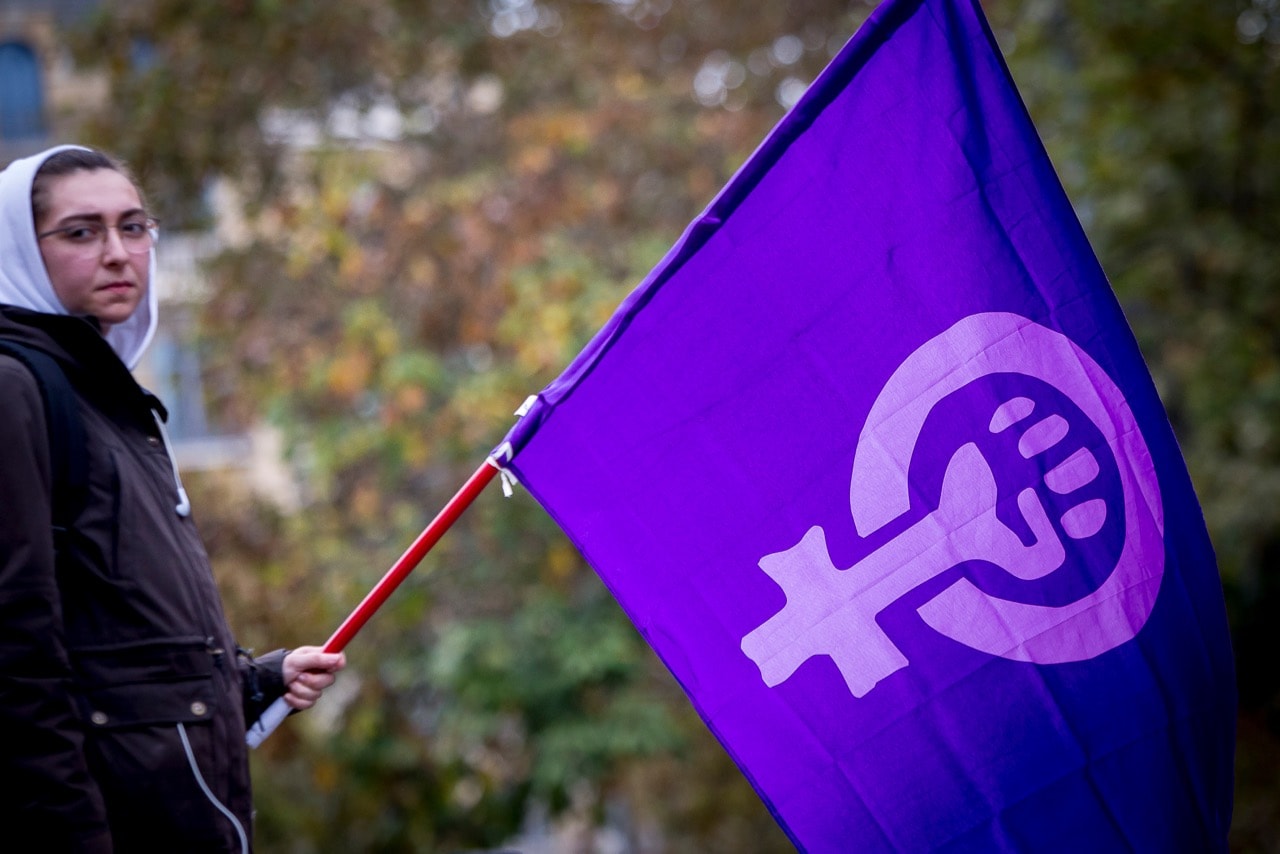As Privacy International highlights in their latest report From Oppression to Liberation: Reclaiming the Right to Privacy - privacy has not always been on the side of women.
This statement was originally published on privacyinternational.org on 28 November 2018.
At Privacy International, we talk about: “the world being on fire.” We say it to talk about the recurring threats to our democracies, the elections of authoritarian leaders, the current political climate… Or the actual climate. More often than not, we use it to talk about the (lack of) security in the design and implementation of computer systems.
But there is another kind of fire. The fourth wave of feminism – the one that contributed to the protests following the 2012 gang rape of Jyoti SIngh in Delhi, the one that brought the Women’s March, the #MeToo movement and its local forms like “Balance Ton Porc” in France, the one that took over universities in Chile – is also setting the world on fire. And this is the kind of fire we have been excited about.
So, what does privacy have to do with this? This question calls for another question: whose privacy are we fighting for when we say we defend the right to privacy? Talking about privacy in the abstract – as if we all benefit from the same rights, as if we are all equal – means taking the risk of defending the rights of only the most privileged ones in society – with privilege coming in different forms from having a voice to be heard to socio-economic status.
The truth is – and this is what we highlight in our latest report From Oppression to Liberation: Reclaiming the Right to Privacy – privacy has not always been on the side of women. When the right to privacy has been defined as protecting the sanctity of homes and the right to be left alone inside our homes, it really was not for the privacy of women. With 137 women reportedly killed every day across the world by a partner or family member and 35 per cent of women worldwide having experienced physical and/or sexual violence by their partner, one better hope that men should not be “left alone” in their homes.
But if we are going to talk about smashing patriarchy and dismantling systems of oppression (as we should!), we need to understand the role of surveillance and data exploitation in perpetuating and enhancing those systems. We need to look at the way patriarchy needs the rigid categorisation of ID systems to impose a binary perspective of gender, how welfare programmes participate in the control and constant monitoring of populations in vulnerable situations, how data exploitation contributes to the expectation that women should look a certain way and seeks to perpetuate traditional gender roles in society, how social surveillance limits the opportunities of women, trans and gender diverse people. And while patriarchy and systems of oppressions need surveillance, the reverse is true as well. Surveillance and data exploitation are about categorisation. They are about putting individuals in boxes, tagging them so they become easier to process. So, when we carry IDs – with an assigned gender on them – or when we get married – and therefore register our family as a unit in the eyes of the state – we become processable.
In a world where decision making led by artificial intelligence will more and more influence our lives and our chances to get job, to access healthcare or for our behaviours to be monitored, and where the internet of things is breaching the divide between the internet and the physical world, women, trans and gender diverse people will be confronted to patriarchal oppression in even more pervasive way then they already are.
This is why it is essential that those fighting for gender equality reclaim the right to privacy. Privacy should be part of their toolbox. It should be the right that allows us to have agency, to control our identity, to speak our mind safely and securely, the right to express ourselves without having a name and face attached to what we say, the right that prevents others from sharing images of us without our consent. But privacy is also about bodily autonomy. It is the right that – in the US – allowed women to access abortion. It should also be the right that allows us to explore our sexual identity, like in India where privacy – once recognised as a fundamental right in the constitution – allowed the decriminalisation of homosexuality.
Perceptions and values of privacy have evolved over history, and not necessarily with the protection of those who need it most in mind.
It is time for a reclaiming of privacy that will empower women, trans and gender diverse people.
It is time for privacy to become a tool to smash patriarchy and so it’s time to ask ourselves what privacy will look like in a post-patriarchal world.
We have some ideas about what such a world looks like and we will continue to campaign for it as we advocate to ensure all can enjoy their fundamental rights. But in the end, by dismantling power structures each woman, trans and gender diverse person will finally be able to define privacy for themselves and to experience it in their own lives.
We hope you join us in this fight.
